|
Douglas Silas,
Specialist SEN Solicitor 7th March 2022
In this week's SEN Update (apart from my: 'Thought Of The Week'), you will find sections entitled:
I know how busy everyone always is, so please feel free just to read the sections that are of interest to you or read everything; the choice is always yours.
THOUGHT OF THE WEEK
Many people think that the mind is the same as the brain. However, I think that they are two different things, as the mind is more emotional and not usually logical, whereas the brain is more logical and not usually emotional. Today, I want to focus on the mind. Sometimes fears are just things repeated by us so many times in our minds that they then feel like facts to us, but it is usually just our own emotional voice that is frightening our mind. If you start to imagine things in your mind, you also have to separate between what is real and what is fantasy. This can be hard though, as you may want something so badly that you will do anything in your mind to convince yourself of it being true. As I have said before, we usually overestimate our abilities because of our enthusiasm for something. We also have to be careful, as the mind can be so easily manipulated by others. For example, somebody can plant a false memory in our mind, which we then think is true, especially if it is repeated. We also often confuse the reality of what happens in our lives, with the fiction that we see or read. They are different things though, as things we see or read are made up in a writer’s mind, which we then think is actually real. We often forget that a writer is usually writing everybody’s lines and so controlling a situation artificially, as people do not always do or say what you expect them to do or say in real life. Although we may then think, if watching a documentary, that it is reality, we forget that somebody is still controlling us, by carefully editing things and only letting us see what they want us to see. Yet the mind being easily manipulated is also helpful, as it can also be quickly put into a mood that makes you want to do something. For example, you can find a routine to follow, or music to listen to, which then prepares your mind to do something. You can also make yourself do something by dressing in a certain way, visualising something, or even just seeing something that you have put there to remind you of it. You need to open your mind up to a world of possibilities, as your mindset dictates how easy something is going to be for you. So, if you think that something is going to be hard, it will then usually be hard, but if you think that something is going to be easy, it will then usually be easy. You also should not try to clutter up your mind with too many emotions and just try to relax sometimes. People seem to have forgotten it seems about the joy of peace of mind! You can even change your mindset by placing yourself in a different environment, the most obvious examples of this are being prepared to work when you are at work, being prepared to relax when you are at home and being prepared to sleep when you are in bed - I could go on! It is also important to remember that your mind and body are inextricably intertwined and need to work together. Somewhat paradoxically again, the best way of being active in the body is to be as still as you can be in the mind and the best way of being active in the mind is to be as still as you can be in the body. But often, your body is in one place and your mind is in another, so they are actually working against each other. Finally, you always need to keep an open mind if you can, especially when thinking about other people. You always need to be prepared to change your mind when you find new information and you also have to remember that no two people have the same interpretation in their mind of how something is, so your version of what you read or see, may be very different from what somebody else reads or sees, but you aren’t necessarily right and they are not necessarily wrong! So, this week try to think about what I have said above and try to discipline your mind, particularly because when the mind is not directly concentrating on something, it often starts leading you astray by daydreaming about fantasies.
SEN NEWS
Nothing really for me to report on in SEN News this week, as (quite rightly) a lot of news attention is focused on the awful events unfolding in Ukraine, so please forgive me not highlighting anything here this week.
NEWS ONLINE
In terms of other news, I'm also afraid that there is nothing really for me to report on in News Online this week, so please forgive me for also not bringing you anything here this week.
USEFUL INFORMATION
Again, aside from clicking on the relevant links for more information, I would also remind you of the very useful resources and information provided on the following websites: - IPSEA - Council for Disabled Children - Special Needs Jungle I would also highlight again the magazines: SEN Magazine and Autism Eye which are both very helpful to any parents or professionals involved with children/young people with SEN. With best wishes Douglas
P.S. Don’t forget, to ensure that you never miss one, you can get my SEN Updates personally by completing your email details above, or by following me on one of the social media platforms I use (i.e. Twitter/Facebook).
P.P.S. You can also share this SEN Update with others (please only do so if it may be relevant to them) by using one of the icons, usually to the right or at the bottom of this page.
How useful do you find my SEN Updates?
Created with Quiz Maker
Douglas Silas,
Specialist SEN Solicitor 31st January 2022
In this week's SEN Update (apart from my: 'Thought Of The Week'), you will find sections entitled:
I know how busy everyone always is, so please feel free just to read the sections that are of interest to you or read everything; the choice is always yours.
THOUGHT OF THE WEEK
Unfortunately, many people tend to think that there is only one type of intelligence in life - IQ, which stands for and is measured by ‘Intelligence Quotient’. However, there are actually two main types of intelligence, as the other is EQ - which stands for and is measured by ‘Emotional Quotient’. IQ is the type of intellectual or academic intelligence which makes people seem clever to us. Although having a high IQ is usually an indicator that someone has more chance of getting somewhere in life, I have found that, in fact, you need to be intelligent both intellectually and emotionally, to get by properly. Intellectual intelligence is not the same as emotional intelligence. Emotional intelligence is often defined as having an ability to perceive, use, understand, manage and handle emotions. People with a high EQ recognise their own emotions, as well as those in others. They also use emotional information to guide their thinking and behaviour, or to distinguish between different feelings and can adjust their emotions to adapt to differing environments or people. Think about it, if an average IQ is 100, a high IQ is 120 and a low IQ is 80, if we then say that an average EQ is 100, a high EQ is 120 and a low EQ is 80, we then find that, although somebody with a high IQ of 120 may seem more advanced, if they have a low EQ of 80, their average is 100 and the same thing goes for somebody with a high EQ and low IQ - they both come out as just average. The trick is to not only have one sort of intelligence of IQ, but to try and have both a high IQ and EQ, so that you are more balanced. In fact, if you extrapolate that, to be successful both intellectually (academically) and emotionally (functionally), you can have just a slightly higher IQ and EQ, as your average of both may then be higher, as only being strong in one may even sometimes hold you back a bit. Also, I have seen that people with a high IQ often (usually unconsciously) make other people around them feel bad about themselves, as others feel intimidated, or even stupid around them. However, people with a high EQ often make other people around them feel good about themselves, by being positive, or pointing out things that they have noticed in them that they themselves may not have noticed. And sorry to be scrambling a bit with your brain this week, but there are actually three more types of intelligence that you need to be aware of: ‘Practical’, ‘Creative’, and ‘Analytical’. Practical intelligence is an ability to deal with daily tasks in the real world and is often compared to being “streetwise’. Being practical means you find solutions in everyday life using knowledge based on experiences. Like when successful people who have dropped out of school/college say that, although they do not have academic qualifications, they have got a degree from the ‘University of Life’ Creative intelligence is an ability to solve problems by imagining new and unique solutions. It is associated with people who have a knack for storytelling, art, and developing new ideas, or the ability to deal with new and unusual situations. . For example, creative intelligence would be involved when using your imagination to write a story, paint, or create something else. Analytical intelligence refers to a person's ability to problem-solve, perform academic tasks, process information, and employ abstract reasoning. I guess it is similar to IQ, as it refers to the ability to complete academic and traditional intelligence tests. However, it is slightly different. Think of it like this: 1) Intellectual intelligence: your ability to learn academically; 2) Emotional intelligence: your ability to understand and use feelings; 3) Practical intelligence: your ability to function in the real world; 4) Creative intelligence: your ability to come up with new ideas.; 5) Analytical intelligence: your ability to evaluate and solve problems. So, this week, look at people again and don’t only see them as intelligent intellectually, but also emotionally, practically, creatively or analytically. You may be surprised when you reframe things, as people you thought clever intellectually, may be not intelligent in other ways, but someone you thought not clever intellectually, may be quite intelligent in other ways!
SEN NEWS
Nothing really for me to report on in SEN News this time. I really struggle sometimes to find things that are worthy of bringing to people's attention, as I do not want to unnecessarily take up their precious time with something, just for the sake of it, so please forgive me not highlighting anything here this week.
NEWS ONLINE
In terms of news, here are the articles that I found of interest this week: One in eight pupils out of school as Covid worsens Up to 10,000 pupils in England missed whole autumn term last year, analysis finds
USEFUL INFORMATION
Again, aside from clicking on the relevant links for more information, I would also remind you of the very useful resources and information provided on the following websites: - IPSEA - Council for Disabled Children - Special Needs Jungle I would also highlight again the magazines: SEN Magazine and Autism Eye which are both very helpful to any parents or professionals involved with children/young people with SEN. With best wishes Douglas
P.S. Don’t forget, to ensure that you never miss one, you can get my SEN Updates personally by completing your email details above, or by following me on one of the social media platforms I use (i.e. Twitter/Facebook).
P.P.S. You can also share this SEN Update with others (please only do so if it may be relevant to them) by using one of the icons, usually to the right or at the bottom of this page.
How useful do you find my SEN Updates?
Created with Quiz Maker
Douglas Silas,
Specialist SEN Solicitor 24th January 2022
In this week's SEN Update (apart from my: 'Thought Of The Week'), you will find sections entitled:
I know how busy everyone always is, so please feel free just to read the sections that are of interest to you or read everything; the choice is always yours.
THOUGHT OF THE WEEK
A lot of people talk about ‘multi-tasking’, both in a good and bad way. Today, I want to talk about this a bit and, as ever, try to get you to see things from a slightly different perspective. Some people say that there is no such thing as ‘multi-tasking’ and then like to point out that, according to scientific studies, you can theoretically only do one thing properly at one time. Others like to argue though that ‘multi-tasking’ is actually their practical reality everyday and something that they always have to do to just keep things going and keep all their plates spinning in the air (think of a circus performer). Personally, I have found that, actually, both of these things are true, but also neither are true - another paradox I am afraid! In reality, multi-tasking is really just task-switching, as I agree that you can usually only do one thing well at once. But I have also found that, both theoretically and practically, you can actually also do two things at once, by focusing on doing one thing actively in the foreground and by also doing another thing passively in the background. For example, you can both ‘listen’ and ‘hear’ at the same time, by ‘listening’ actively to something in the foreground, but ‘hearing’ more passively in the background to what is going on around you. Of course, you can always then switch your attention to something in the background and bring it to the foreground, if necessary. In fact, I think that we unconsciously and naturally do this all the time. Think of listening to music passively in the background, whilst doing something actively in the foreground. Or, as parents of young children often say, focusing on doing something actively in the foreground, whilst still listening to their children passively in the background, to ensure that they are alright. In fact, this principle also applies more generally, if you are walking, running or doing something outdoors. Another example, and maybe one of the best ways to illustrate this principle, is to carefully watch a martial artist, who seems to be successfully fighting six people simultaneously. When you really look at them though, they are actually only fighting one person at a time so, effectively, only doing one thing well at once. However, our brain then tricks us into thinking that they are fighting everyone at the same time. Unfortunately, this is also the same brain that tricks us into believing that we can also do more than one thing at once. This is not really so. In fact, I often like to joke that, whilst some people say that they can multi-task well, they actually may sometimes not do everything that they are doing as well as they can, or they may just start a lot of things but then not properly finish them! I have also found that, practically, whilst you may then think that you should only do one thing at a time to be able to do it as well as you can and then focus all your energies on it, I am afraid that we also live in a practical world, where we often have to do more than one thing at once. Therefore this idea of foreground and background tasking is quite important to try and understand and become used to, if you can. Think about it, if you only do one thing at a time, you may be able to give it 100% of your focus and energies, whereas if you try to do two things at a time, you may only be able to give them both about 50% each; whereas if you actively do one thing in the foreground, you can still give it 100% and if you do another thing in the background, but have it there ready to switch to if you need to, then it doesn’t take up any more of your focus or energies until it needs to. If you do follow this idea (you will need to try it a few times before you get it right), you will also end up being able to do two things at once, or do the same thing in half the time. With practice, it almost feels like you are getting yourself more time in your day! So, this week, try thinking about what I have said above and focusing on just doing one thing at a time actively in the foreground, whilst doing something else more passively in the background - you also may get twice as much done in the same time, or do something in half the time!
SEN NEWS
Not much to report on in SEN News again this week. Although one thing caught my eye again - a tweet by the Disabled Children's Partnership (DCP), which stated: "CountDisabledChildrenIn calls on local councils to invest in the services that disabled children and families deserve as they set their budgets for the next year. Email your council leader http://Bit.ly/DCPCountDisablntDisabledChildrenIn"
NEWS ONLINE
In terms of news, here are the articles that I found of interest this week: Covid in schools: Inquiry launched to find 100,000 pupils absent in England Masks to stay in many secondary schools despite England rule change Boris Johnson tells schools in England to end mask-wearing policy
USEFUL INFORMATION
Again, aside from clicking on the relevant links for more information, I would also remind you of the very useful resources and information provided on the following websites: - IPSEA - Council for Disabled Children - Special Needs Jungle I would also highlight again the magazines: SEN Magazine and Autism Eye which are both very helpful to any parents or professionals involved with children/young people with SEN. With best wishes Douglas
P.S. Don’t forget, to ensure that you never miss one, you can get my SEN Updates personally by completing your email details above, or by following me on one of the social media platforms I use (i.e. Twitter/Facebook).
P.P.S. You can also share this SEN Update with others (please only do so if it may be relevant to them) by using one of the icons, usually to the right or at the bottom of this page.
How useful do you find my SEN Updates?
Created with Quiz Maker
Douglas Silas,
Specialist SEN Solicitor 17th January 2022
In this week's SEN Update (apart from my: 'Thought Of The Week'), you will find sections entitled:
I know how busy everyone always is, so please feel free just to read the sections that are of interest to you or read everything; the choice is always yours.
THOUGHT OF THE WEEK
We so often get so stuck and waste so much of our time worrying about the past, that we sometimes forget to make the most of the present, or to look to the future. In reality, we want to look back fondly on life and remember good things, not bad things. However, not all things that we remember that we have done are good things. We may regret them. Yet, as I have said before, it is actually mistakes that we make, or things that we regret, that we actually learn from, or that we have to go through to become who we are, even if we would have preferred to do so otherwise. Ironically, these experiences are usually quite positive for us in the long run, as we can often then take away something naturally from them and, provided that we have learned from them, if getting something wrong, we may then be able to use them as learning experiences later on in our lives in other similar situations, even within a different context. I heard someone say once that, on the basis that we have a lifespan of about 80 years, we only have about 4000 weeks of life. So therefore, using logic, if we are already 20 years old, we only have 3000 weeks left, if are already 30 years old, we only have 2500 weeks left and, if we are already 40 years old, we then only have 2000 weeks left to go and and that number is forever dwindling. Chilling isn’t it, when you put it like that? I also heard it said by someone else that we generate all our cells afresh every 7 years, so therefore we are then theoretically a new person every 7 years. Therefore, we should remind ourselves that, practically again using logic, what we did 10 years ago was done by one earlier version ago of ourselves, but something that we did about 20 years ago was actually done by someone almost three earlier versions ago of us! Additionally, do not mix up positive and negative thinking about things that might have happened to you in the past as, if you do this, you may only confuse yourself, as the bad will always seem to outweigh the good, even though that it may not actually be that way in reality. This principle so often applies to so many things we encounter, where one small bad thing always outweighs the many good things that there are. Think of it like putting only a single small drop of coloured dye into a large bucket of clear water. Although there is far more clear water, the dye always spreads completely and tinges everything. Another example is how, out of 100 people, 99 people think of us in a positive way, but if one person thinks of us in a negative way, we focus on that and then ignore the 99 people who think positively of us. It just doesn’t make sense! You cannot help thoughts springing into your head, but you can choose whether or not they stay there and whether you listen to them or not. I also heard someone say once that you should gently let negative thoughts come into but then also go out of your mind, in the same way as somebody goes through a revolving door at the front of a hotel - they just come in, go around and then go out again. So, this week, try not to get stuck in the past or, if you do, try to think of any mistakes that you have made as positively as possible and as just learning experiences that help you in the future. Also, this week, try to think about the importance of using your remaining time of what is left in life as well and positively as possible.
SEN NEWS
Not much to report on in SEN News this week. Although one thing caught my eye - a Government consultation entitled: 'Keeping children safe in education: proposed revisions 2022'.
NEWS ONLINE
In terms of news, here are the articles that I found of interest this week: Schools struggle amid Covid as one in 12 teachers off Nurseries in England hit by staff absences after soaring Covid cases Covid in nurseries: Staff shortages 'mentally exhausting'
USEFUL INFORMATION
Again, aside from clicking on the relevant links for more information, I would also remind you of the very useful resources and information provided on the following websites: - IPSEA - Council for Disabled Children - Special Needs Jungle I would also highlight again the magazines: SEN Magazine and Autism Eye which are both very helpful to any parents or professionals involved with children/young people with SEN. With best wishes Douglas
P.S. Don’t forget, to ensure that you never miss one, you can get my SEN Updates personally by completing your email details above, or by following me on one of the social media platforms I use (i.e. Twitter/Facebook).
P.P.S. You can also share this SEN Update with others (please only do so if it may be relevant to them) by using one of the icons, usually to the right or at the bottom of this page.
How useful do you find my SEN Updates?
Created with Quiz Maker
Douglas Silas,
Specialist SEN Solicitor 10th January 2022
In this week's SEN Update (apart from my: 'Thought Of The Week'), you will find sections entitled:
I know how busy everyone always is, so please feel free just to read the sections that are of interest to you or read everything; the choice is always yours.
THOUGHT OF THE WEEK
Conflict is actually very normal, as it is almost ludicrous to truly believe that everybody will always think the same as you - much as you would like them to! Yet most people believe that conflict never solves or resolves anything and therefore should always try and be avoided by us most of the time, at all cost. However, conflict (or at least some form of disagreement) is often inevitable and, ironically, sometimes you can look at conflict positively. The reason is that it is often really about how you deal with that conflict - constructively or destructively. To properly solve a conflict, you really have to go beyond the conflict itself and instead try and get to real communication, where you actually ultimately listen to another person with differing views to you and, if you cannot initially resolve your differences, take a break and try again later, without demonising the other person. We need to try to always see things from another person’s perspective first. Too often we are very polarised in our views so that, if we do not agree with someone, we instantly dismiss them unconsciously (or even consciously) as ‘stupid’. Unfortunately, especially during recent years, there seems to be only talking, but no listening anymore. We also seem to have a mindset where now, not only must someone ‘win’, but the other person must also ‘lose’! However, logically, we don’t like it if they do the same to us - so we can’t have it both ways! And you don’t have to necessarily agree with someone to have a peaceable relationship with them. We should be aiming for ‘win/win’, where both people genuinely feel they have won something, as now it is more like ‘lose’/‘lose’, because people cannot respectfully just agree to disagree. You may also find that some people say or do things that are often conflicting, but that they do not seem to realise that they are acting in a contradictory or hypocritical manner. In fact, I have found that people who do this are also usually the quite clever people, who always seem to have an answer for everything and will try to cleverly rationalise what they have said or done. In order to resolve conflict peaceably and positively, you also need to show the other person that you are working hard to understand them, or to see their point of view and, in this way, are trying to resolve a conflict. You do this by saying things like: ‘Please help me understand you’ and then fully listening to them explain their view, no matter how hard it is to hear, or how wrong you think they are. You do not have to agree with someone, but you do need to listen to them. Also, you cannot change what has happened in the past, you can only do things differently for the future. Of course, all of the above also works the other way around and, if you do listen to them, then you will also be able to point out to them later if they try to not hear you, that they should also listen to you! We also need to, metaphorically, press the ‘pause’ button before we respond to them or do anything. A lot of the time, what they say just makes us angry, but as Thomas Jefferson once said, if you are angry you should count to 10 before you say anything or respond to something, but if you are very angry, you should first count to 100 ! So, this week, as strange as it may seem for me to say, try to look on your conflicts with other people as opportunities for you to positively resolve them. You may actually then find that doing things this way helps make you a better person, or reach a better place!
SEN NEWS
A New Year and it's time for more Government guidance! Again, it's in three parts (there may be more which I'm unaware of), as follows: - Schools COVID-19 operational guidance (January 2022) - SEND and specialist settings: additional COVID-19 operational guidance (January 2022) - Evidence Summary: Coronavirus (COVID-19) and the use of face coverings in education settings (January 2022)
NEWS ONLINE
In terms of news, here are the articles that I found of interest this week: Pupils return to Covid testing and masks in class Schools in England may suspend certain subjects to cope with Covid Covid: Face mask refusals in some of England's secondary schools spark parents' concern
USEFUL INFORMATION
Again, aside from clicking on the relevant links for more information, I would also remind you of the very useful resources and information provided on the following websites: - IPSEA - Council for Disabled Children - Special Needs Jungle I would also highlight again the magazines: SEN Magazine and Autism Eye which are both very helpful to any parents or professionals involved with children/young people with SEN. With best wishes Douglas
P.S. Don’t forget, to ensure that you never miss one, you can get my SEN Updates personally by completing your email details above, or by following me on one of the social media platforms I use (i.e. Twitter/Facebook).
P.P.S. You can also share this SEN Update with others (please only do so if it may be relevant to them) by using one of the icons, usually to the right or at the bottom of this page.
How useful do you find my SEN Updates?
Created with Quiz Maker
Douglas Silas,
Specialist SEN Solicitor 20th December 2021
This is my last SEN Update for this (chronological) year - I will write again in a few weeks.
In this week's SEN Update, you will find sections entitled:
I know how busy everyone always is, so please feel free just to read the sections that are of interest to you or read everything; the choice is always yours.
THOUGHT OF THE WEEK
You have to always just accept people for who they are. We must remember that people always seem to remember people as they were, not as they are. This is particularly noticeable with parents who still treat their grown up children as small children, even when these children are now in their 30s, 40s or 50s! This idea is very important at this time of year, as we may be coming into contact again with people who we have not seen for a while. This is also why, at school reunions, much older and wiser people often still go back to how they were at school previously with the same dynamics happening, even though it is many years later, and a lot has happened to change them since. This is because they have not seen each other since then and realised that they have changed. It is very hard for us to sometimes accept people for who they may be now, especially in family dynamics. This is commonly noticed when you hear people use phrases like: “They were always like that” or “They never did that”. Remember, people like to say that you can choose your friends, but you cannot choose your family. Let me develop this idea further here. Parents (generation 1) of older children (generation 2), now adults, who may even now have grown up children of their own (generation 3), often still view them as they were before they left home. This first generation somehow becomes stuck in a time warp and treat the second generation as they were previously, as they have not seen them grow up since (even if seeing them regularly in the interim). It is also a little bit more than this though. Unfortunately, some people are also negative and will always remain negative, no matter what you do and how positive you are with them. It is as if they want to remain negative, perhaps because they feel safe and secure like this. Ironically, no matter how hard you try to change them, you usually are just wasting your time and energy as, rather than you making them more positive, they will usually end up dragging you down, rather than you dragging them up! Some people will fill you with energy when you are with them by being positive, but negative people will just sap you of energy when you are with them. You therefore need to recognise this and have to sometimes cut negative people out of your life as much as possible, as hard as it can be, although, with family in particular, you have to remember that it is always better to have a cool peace rather than a hot war. And, whilst I think that you should accept people as they are, somewhat counterintuitively (almost contradictorily), I think that you should still try to be positive with negative people, or at least recognise these kinds of people, so you can try to avoid them. You also need to remember that people also have to accept you for who you are too sometimes, as you may not always be at your best. Finally, it also works with the other way round, as you have to remember that other people may now be very different to how you remember them from a younger time in your and their lives. They have probably also been through many experiences since then, so you need to accept them as they are and not not try to change them into who you want them to be. So, as we now break for the winter holidays for the next couple of weeks, try to hold in your head some of what I have said, if you can - it is so simple when you think about it, if you accept people above for who they are, they will probably accept you for who you are!
NEWS ONLINE
In terms of news, here are the articles that I found of interest this week: Omicron: Schools prepared if Covid forces online move next term Omicron leads many UK schools to close early for Christmas Persistent Covid-related absence leaves pupils lagging – Ofsted
SEN NEWS
Again, aside from clicking on the relevant links for more information, I would also remind you of the very useful resources and information provided on the following websites: - IPSEA - Council for Disabled Children - Special Needs Jungle I would also highlight again the magazines: SEN Magazine and Autism Eye which are both very helpful to any parents or professionals involved with children/young people with SEN. Keep safe until the new year! With best wishes Douglas
P.S. Don’t forget, to ensure that you never miss one, you can get my SEN Updates personally by completing your email details above, or by following me on one of the social media platforms I use (i.e. Twitter/Facebook).
P.P.S. You can also share this SEN Update with others (please only do so if it may be relevant to them) by using one of the icons, usually to the right or at the bottom of this page.
How useful do you find my SEN Updates?
Created with Quiz Maker
Douglas Silas,
Specialist SEN Solicitor 13th December 2021
This week I want to talk to you about the important concept of ‘thinking’.
I often say that it is not only about what you do, but it is also about how you think, before you do. Unfortunately, many people overlook the importance of thinking before doing, or fail to realise how our thoughts so easily influence what we do. Additionally, you need to think carefully, independently and positively, as that ultimately guides your actions. To put it more simply, you do what you think. We often take thinking for granted and feel that our thoughts are our own. But the truth is not always what we first think. We also have to remember that people are suggestible, not only to their own thoughts, but also to thoughts of others. For example, one of the easiest ways of me explaining this, is to simply tell you to think of a penguin! In most cases, you now cannot help but think of a penguin! But this concept also works the other way around, as if you try now to not think of a penguin, if I then say that you should not think of a penguin, you probably will also think of a penguin! Some of you may have also noticed that I have additionally deliberately repeated the word ‘penguin’ already four times, so you have therefore now almost definitely thought of a penguin (that’s five times now!) And just to give my idea one final push, here’s a picture of a penguin as well!
I know this is amusing, but it’s actually quite serious. We’re exposed everyday to things in the media, the news, or on social media - especially in advertising - where others try to get us thinking in a way that benefits them and not us. You can avoid this if you can, but you can’t avoid it entirely. The only way to stop it influencing you is to lessen exposure and think as independently as possible.
I am also a great believer in learning from as many things and people as possible. You can learn from everything, as long as you are open to it. For example, if you expose yourself to all sorts of things, be it history, art, science, technology, religion etc., you will think more and by thinking more you learn more. You may also start to see connections between things that you may not have noticed before. It is very important though that we also listen to other people who think differently to us, not just people who think the same as us. This is very dangerous and can lead to what people call ‘echo chambers’, where you only listen to others who think the same as you (like an echo) so you then get stuck thinking the same way and having your (often mistaken) thoughts affirmed, so you think they are correct. But we also need other people to help us think. Thinking out loud is easier than thinking within, as having to explain things to others helps us clarify our thoughts to ourselves. It also helps us test our thoughts if we have to justify them to others, as they may sound different to us when coming out of our mouths, rather than just running around in our brains, where thoughts can be more easily manipulated. You need to realise that not everyone thinks like you, or is wired in the same way. Just because someone thinks the opposite, does not mean that what they think is wrong and what you think is right. We seem to have developed into only having or accepting extreme ways of thinking, with things being either very good, or very bad (and we always feel that what we do is good, but what others do is bad!) Unfortunately, we also often overthink something, when we have more time than we need to think about it. But you should not overthink something and then complicate it unnecessarily. You should also not use overthinking unconsciously as an excuse not to take action. Remember, although I have said that you should think before doing, you need to both ‘think’ and ‘do’. So, this week, try to think about ‘thinking’ and what I have said above - it may lead you to think about and do things differently!
In this week's SEN Update, you will find sections entitled:
I know how busy everyone is, so feel free just to read the sections of interest,
or read everything; the choice is always yours.
SEN NEWS
I received another email a few days ago from the SEND Division at the Department for Education (DfE), which stated: "Dear colleagues, Following the Prime Minister’s announcement yesterday on the implementation of Plan B of the COVID-19 Response: Autumn and Winter Plan we updated the Special schools and other specialist settings: coronavirus (COVID-19 guidance). The government is clear on the critical importance of not disrupting the education of children and young people and the government will prioritise keeping all education and childcare settings open. The measures will support this. The main updates are: · updated advice on supporting vulnerable children and young people who are self-isolating · updated advice on tracing close contacts and isolation to reflect the forthcoming change to isolation rules · updated asymptomatic testing section reflecting that you should encourage visitors to test before coming to your setting · updated to reflect the latest language on children who were previously considered to be clinically extremely vulnerable · additional section on mandatory vaccine certification · updated workforce section to reflect the latest language on adults who were previously considered to be clinically extremely vulnerable and to reflect the Government recommendation to work from home if you can We will keep the guidance under review as the situation develops. Many thanks Special Educational Needs and Disability Division"
EWS ONLINE
In terms of news, here are the articles that I found of interest this week: Covid: figures reveal vaccine lottery for children in England Too many children left at risk too long - Ofsted Vaccinate five- to 11-year-olds to protect UK schools, scientists say
Again, aside from clicking on the relevant links for more information, I would also remind you of the very useful resources and information provided on the following websites:
- IPSEA - Council for Disabled Children - Special Needs Jungle I would also highlight again the magazines: SEN Magazine and Autism Eye which are both very helpful to any parents or professionals involved with children/young people with SEN. Keep safe until next week. With best wishes Douglas
P.S. Don’t forget, to ensure that you never miss one, you can get my SEN Updates personally by completing your email details above, or by following me on one of the social media platforms I use (i.e. Twitter/Facebook).
P.P.S. You can also share this SEN Update with others (please only do so if it may be relevant to them) by using one of the icons, usually to the right or at the bottom of this page.
How useful do you find my SEN Updates?
Created with Quiz Maker
Douglas Silas,
Specialist SEN Solicitor 6th December 2021
Last week I talked about avoiding negative self-talk, but this week I want to talk about how you need to instead use positive self-talk!
You often just need to consciously verbalise in your mind what you want to happen in a positive way. You are simply replacing negative self-talk with more positive self-talk. Some people also say that it is about improving ratios and that you should have three times as many positive than negative thoughts, but I think that just having more positive and less negative thoughts is better. But you can’t jump straight from negative to positive thinking in one foul swoop. Long-lasting change only comes through little changes over time, not trying to do everything at once. You have to accept this and realise that you always need to do things little by little. Although you may try to be more positive than negative, you won't immediately become positive in everything that you think. Like most things in life, it is usually a case of two steps forward and one step back - not one step forward and two steps back, otherwise you will be going the wrong way! All these small changes a bit at a time though will lead to big changes eventually, probably without you even realising. There is also a difference between our conscious mind and our unconscious mind. Our brain is also very suggestible. If you think about it, if we fill our brain (or allow it to be filled) with negative thoughts, rather than positive thoughts, than this is the way that we will think of things. But then, if you also think about it, if we fill our brain with positive thoughts, rather than negative thoughts, that is also the way that we will then think of things. It is therefore important to not let your mind be continually hijacked by negative thoughts, or controlled by others, such as what we read or hear everyday on news or social media. If you really believe that it’s too hard to do this, then try to lessen or stop your exposure to it. It is not as difficult as it seems to deliberately ignore news or social media - just remember, you have a choice! Also, remember, as I said before, a lot of the negative thoughts that we have are based on our own unconscious fears. So, being aware and having insight into yourself are also great weapons to use against negative self-talk. However, you have to catch yourself in the moment and recognise when you are sounding negative, or being exposed to negative things. You can’t just force yourself to think positively by saying positive things to yourself, as they do not really mean anything sometimes. There is also a danger that you can sometimes see these things as a bit delusional or untrustworthy. In the same respect though, just as you should not tell lies or deceive others, you should also not tell lies or deceive yourself! Sometimes, you get turned off by a positive voice in your head feeling like it is coming from a self-help book, or it sounds a bit corny, like a motivational speaker, so you mistrust it. You must therefore find something evidentially true and put a positive spin on it that you can believe. If you record it in some way, you can also look back on it later to see how positive self-talk actually works. The brain is also, as some people say, the rebellious organ in the body, so it often does the opposite of what we want it to. We therefore usually also need to see continual evidence that positive thinking is working for us. It is a bit circular I am afraid, as only the more we do this, the more we achieve and only can we then evidence to ourselves that positive thinking works for us. It is also about attitude and seeing things more positively. You don’t just need to turn down the volume on your negative voice, but you also have to turn up the volume on your positive voice. However, we often have soundtracks in our minds from earlier in life and tend to hold onto negative things that people have said to us, especially when we were young and impressionable. So, this week, try to use positive self-talk as much as possible - you will hopefully find that the more you do it, the more positive things will become for you!
In this week's SEN Update, you will find sections entitled:
I know how busy everyone is, so feel free just to read the sections of interest,
or read everything; the choice is always yours.
SEN NEWS
I received another email this week from the SEND Division at the Department for Education (DfE), which stated: "Dear colleagues In light of the new Omicron variant, yesterday we updated the Special schools and other specialist settings: coronavirus (COVID-19) guidance. The main updates are: Information for all education and childcare settings on new measures in response to the identification of the Omicron variant of COVID-19 in the UK
Testing
Contact tracing and isolation
Vaccination
Changes to the red list for international travel to England
We will keep the guidance under review as the situation develops. Many thanks Special Educational Needs and Disability Division"
NEWS ONLINE
In terms of news, here are the articles that I found of interest this week: School Covid absence up 60% in England in two weeks England’s nativity plays Covid guidance ‘unhelpful’, say school leaders “Strengthening and modernising”: Ombudsman sets out proposals to strengthen public voice
Again, aside from clicking on the relevant links for more information, I would also remind you of the very useful resources and information provided on the following websites:
- IPSEA - Council for Disabled Children - Special Needs Jungle I would also highlight again the magazines: SEN Magazine and Autism Eye which are both very helpful to any parents or professionals involved with children/young people with SEN. Keep safe until next week. With best wishes Douglas
P.S. Don’t forget, to ensure that you never miss one, you can get my SEN Updates personally by completing your email details above, or by following me on one of the social media platforms I use (i.e. Twitter/Facebook).
P.P.S. You can also share this SEN Update with others (please only do so if it may be relevant to them) by using one of the icons, usually to the right or at the bottom of this page.
How useful do you find my SEN Updates?
Created with Quiz Maker
Douglas Silas,
Specialist SEN Solicitor 29th November 2021
In this week's SEN Update, you will find sections entitled:
I know how busy everyone is, so feel free just to read the sections of interest,
or read everything; the choice is always yours.
THOUGHT OF THE WEEK
We have to be very careful sometimes to avoid talking negatively to ourselves. It is all too easy for us to see the bad in things sometimes, or be held hostage by our fears that we may not be able to do something. We all have lots of underlaying worries and we usually always default to the negative versions of things and then see the worst possible scenario, as we usually tend to inflate or exaggerate our fears. Your brain automatically thinks of the worst thing sometimes. It is like you also want to sabotage yourself unconsciously. It is like having someone inside your head constantly telling you that you cannot do something. But self-talk can be both positive or negative – it is always up to us. You cannot silence that inner negative voice completely, but you can ignore it and try to remember that it is just your fears that are talking. There is also always a difference between the message that we get from our brain and the way that we choose to respond to it. I know that this is something that is often quite hard for us to do naturally, as we frequently grow up and become increasingly cynical over many years, perhaps as an unconscious self-defence mechanism. However, we can also choose the opposite way to look at things if we really try to. For example, we often hear people referring to themselves or others as a ‘pessimist’ or an ‘optimist’ and seeing a glass as ‘half-empty’ or ‘half-full’. Some people even like to try to say that they are not one of these, but instead are really a ‘realist’ or a ‘pragmatist’, but this often sounds to me like a pessimist talking! Another example is the: “What if?” questions, which are usually quite negative and are just the pessimist inside of you talking and asking: “What if this or that happens and things turn out for the bad?” But you can actually flip this question around most of the time and instead ask yourself something like, “What if this or that turns out to be for the good and not for the bad?” Imagine it is like in a fairytale or children’s story and you have to make yourself resist going down the bad path, which only leads you to bad things and instead choose the good path, which only leads you to good things and which eventually takes you to the enchanted castle at the end! The irony is that we usually laugh at characters in films or on TV with negative emotions and outlooks on life, such as Eeyore, from Winnie The Pooh, or Marvin the Paranoid Android, from The Hitchhikers Guide to the Galaxy (I am sure you can think of many more characters like this). If that person were outside of you who was constantly saying negative things, you would simply laugh at them and ignore them. Yet, because it is your own voice telling you something inside your own head, you tend to give it more credibility and take it more seriously. You must not dwell on things and let them take over your thoughts. You also have to often let go of things and move on. For example, you find that, sometimes, your brain just seems to go back unconsciously to some of the worst things in your life from many years ago, which has nothing to do with what you are doing at the time. So, this week, if you hear that little voice inside yourself talking negatively and saying that you cannot do something, try to ignore it if you can and realise that it is just your unconscious fears probably talking to you and do not let it control what you do!
NEWS ONLINE
In terms of news, here are the articles that I found of interest this week: Covid jab wait for 12- to 15-year-olds in England could be up to five months Councils in England report 34% rise in elective home education Covid: Schools asked to test on-site after Christmas
SEN NEWS
Again, aside from clicking on the relevant links for more information, I would also remind you of the very useful resources and information provided on the following websites: - IPSEA - Council for Disabled Children - Special Needs Jungle I would also highlight again the magazines: SEN Magazine and Autism Eye which are both very helpful to any parents or professionals involved with children/young people with SEN. Keep safe until next week. With best wishes Douglas
P.S. Don’t forget, to ensure that you never miss one, you can get my SEN Updates personally by completing your email details above, or by following me on one of the social media platforms I use (i.e. Twitter/Facebook).
P.P.S. You can also share this SEN Update with others (please only do so if it may be relevant to them) by using one of the icons, usually to the right or at the bottom of this page.ere to edit.
How useful do you find my SEN Updates?
Created with Quiz Maker
Douglas Silas,
Specialist SEN Solicitor 22nd November 2021
You have to remind yourself to take a break sometimes, if you want to solve a problem properly.
In order to solve a problem, you often need to be not actively be thinking about it in the first place. If you do this, your brain will then suddenly (almost miraculously) and unconsciously solve the problem for you without you asking! Some people call this background thinking because your thinking takes place in the background, rather than in the foreground. Also, the more you think about a solution to a problem, the more the solution will usually run away from you. The irony of this is that the less then you think about a solution, the more likely you are to come up with a solution to the problem! The trick is to also do something quickly, because the more time you spend on something, the more difficult it is going to be to come up with a quick and simple solution. Remember, simplicity is the key as the more complex your problem, the simpler the answer is. The key to doing this successfully is also to either be doing something different, or actually be somewhere different. It is not just about a different way of being mentally, it is also about a different way of being physically. For example, many people do their best thinking when they are in the shower, sitting in the garden or on the sofa, or just taking a walk or going to the park. Unfortunately, you often feel chained to your desk or workplace and can be reluctant to leave it, because it feels as though you will then not be doing your work. But you actually get your best ideas about work when you are not at your desk or in your normal workplace. Even just getting up from your desk and going to the bathroom, or going for a coffee break, sometimes helps you to solve a problem that you were trying so hard to solve at your desk. The funny thing is that also, if you are sitting at a desk in front of a computer, you will often get distracted by so many things that you can do, so you then often find it hard to do the one thing that you are supposed to do! In this example, you may wish to take your phone, tablet, or laptop, and go and sit in the garden or on the sofa. There is an irony here, as many people trying to solve a complex problem, often feel that they need to get away for a weekend or even a holiday, just to think about it properly and solve it, but they then often think of the solution to the problem quite easily on their way to their destination, so that they have already solved their problem by the time that they get there! There is also another irony here because you often need to think of solutions to problems when you are under time pressures and then, paradoxically, will feel guilty and not feel that you have the time to take a break, because you will then not be spending time focusing on that problem. Yet, it is actually taking that break that will help you solve the problem in much less time. So you need to let yourself have that break, even if you feel that you cannot spare that time, as you need to think of that time as a necessary part of the work you have to do to come up with a solution to the problem. So, this week, try taking a break when you are getting stuck on a problem and looking for a solution. You will be amazed at how doing this so often helps you to then more easily come up with a solution to that problem, as I have described above.
In terms of news, here are the articles that I found of interest this week:
Ofsted inspections for all England's schools and colleges Plan to speed up Ofsted inspections of schools in England sparks fury School uniform costs: 'It amazes me how much I spend on my children'
Again, aside from clicking on the relevant links for more information, I would also remind you of the very useful resources and information provided on the following websites:
- IPSEA - Council for Disabled Children - Special Needs Jungle I would also highlight again the magazines: SEN Magazine and Autism Eye which are both very helpful to any parents or professionals involved with children/young people with SEN. Keep safe until next week. With best wishes Douglas
P.S. Don’t forget, to ensure that you never miss one, you can get my SEN Updates personally by completing your email details above, or by following me on one of the social media platforms I use (i.e. Twitter/Facebook).
P.P.S. You can also share this SEN Update with others (please only do so if it may be relevant to them) by using one of the icons, usually to the right or at the bottom of this page.
How useful do you find my SEN Updates?
Created with Quiz Maker
Douglas Silas,
Specialist SEN Solicitor 15th November 2021
You usually have to find things out for yourself I’m afraid, through a process of trial and error.
Although you can sometimes learn from other people, your true learning usually only takes place when you experience something for yourself. Learning is also generally through repetition. The trick here is to always learn from any mistakes the first time around, if possible, and then try to never make the same mistakes again (or never to make the same mistakes in the same way again). However, mistakes (within reason) are often actually good for you, as that is how we often learn. Also, accept situations for what they are and not what you want them to be. You usually never get it right the first time you try something. So, try to remember that you usually only get something right in the end, by getting it wrong a few times at first. However, be willing to try it again, knowing that, although it may not have worked out for you the first time you tried it, you will get better at it each time that you try it and should then succeed in the end, if you do not give up. People like to recall how Thomas Edison, who only invented the light bulb on his 10,000th attempt, later said: “I have not failed 10,000 times, I’ve just successfully found 9,999 ways that will not work!” There is also a real and significant difference between having high expectations and having high aspirations. It is alright to have high aspirations and really go for something, but you always have to manage your own (and other people's) expectations and be prepared to get something wrong. If you have a high expectation that something will work out for you the first time that you try it, you may soon find out that this is often unrealistic and you then will feel probably even more disappointed with the result, even if it was only slightly off what you had hoped for. It may even be serendipity in hindsight that something did not go the way that you wanted the first time, as something better was waiting for you around the corner. As people say: “Be careful what you wish for.” You can only see things through your own eyes anyway and not through other people's eyes. Remember, not everyone is like you or thinks like you. You therefore have to find out what works for you through trial and error, as what works for one person does not always work for another person and just because something works for somebody else, doesn't mean that it will work for you. You also often need to experiment with doing new things in different ways, until you eventually find what really works for you. There is no simple or single solution to things, as there are so many different ways of doing things. Also, not everyone can do everything, so just try to be the best version of yourself, rather than trying to be somebody else. At least, try to be a better version of yourself, if you can. In fact, just aim to get 1% better every day! Also, if you do start comparing yourself with others, you will again feel disappointed, as there will always be other people who are better than you at something. Finally, try to quickly accept situations for what they are and not what you want them to be. Realise that some days will be good, but some days will be bad. You just have to just hope that the good outweighs the bad, or try to and bring the bad day to a close and get rid of it and then try and make the next day a good day! So, this week, just try to realise that things do not usually work out the first time for you and be willing to try again. Remember, you're also just human!
In this week's SEN Update, you will find sections entitled:
I know how busy everyone is, so feel free just to read the sections of interest,
or read everything; the choice is always yours.
SEN NEWS
I received another email this week from the SEND Division at the Department for Education (DfE), pointing me to an open letter by Will Quince MP, Minister for Children and Families, about the long delayed SEND Review, which stated: "...I want to assure you that I am wholeheartedly committed to the SEND Review. It is vital work and as we move towards publication of our proposals in the coming months, it is key that your children, families, teachers and others who play a vital role are actively involved. ... As parents and carers of children with SEND, you are seeking change to the system so that your children get support earlier and outcomes improve alongside better access to jobs and services. I am committed to delivering the SEND Review quickly but we do need to make sure our proposed changes are robust. The Review has been delayed, in part due to the pandemic which has intensified some of the issues in the system, and we have needed time to reflect on those. We also wanted to do justice to the huge amount of input we have received and take time to check back with people that we had properly understood what they were telling us. I agree improvements are needed – and overdue. To help us move forward and enable us to publish proposals in the first quarter of 2022, we have established a steering group that brings together government departments with representatives of parents, schools, colleges and early years, local government, health and care and independent experts. You can find out more about the steering group here: www.gov.uk/government/groups/send-review-steering-group. We will of course continue to work with a wider range of organisations to hear further from young people, parents and those who work with them so they can inform and challenge our thinking. We still have work to do on the Review and I do not think it is helpful to offer up specific details ahead of publication of the full set of proposals. I think it would be more helpful for people to see them all together, so that they can make an informed judgement about whether they will lead to the lasting changes we all want to see. What I can say at this point is that, based on what we have heard and the evidence we have gathered, we know that it is important that proposals offer a way forward to reduce local variation. We also need to improve early intervention, make clearer the support and services everyone should be able to expect and have funding and accountability systems in place which support this. Improving complex systems is challenging and our proposals must align with other improvement work currently underway, such as the Care Review, recovery planning and wider reform. And we need to make sure changes we propose are supported and understood across health and care services, as well as education providers. As an indication of this government’s continued commitment to supporting the most disadvantaged children and young people, I was delighted that the recent budget announcement committed £2.6 billion over the next three years for school places for children and young people with SEND, more than tripling current capital funding levels to over £900 million by 2024-25. The Spending Review also delivers an additional £4.7bn for the core schools budget by 2024-25. This settlement includes an additional £1.6bn for schools and high needs in 2022-23, on top of the funding we previously announced. We will confirm in due course how this additional funding for 2022-23, and for the two subsequent years, will be allocated for schools and high needs. This is a hugely positive outcome. Over the coming months, I will be making more visits and listening to children, young people and their parents and school, college and local authority staff, as well as meeting with SEND organisations and experts, across education, health and care. Their views will influence the proposals we set out in a full public consultation. I strongly encourage people to get involved in that consultation. Your views really matter. I don’t underestimate the challenge we face. But continuing to listen, and working together, gives us the best chance to make sure all children and young people get the educational experience they deserve. Will Quince MP Parliamentary Under-Secretary of State for Children and Families"
NEWS ONLINE
In terms of other news, here are the articles that I found of interest this week: GCSE and A-level changes give pupils advance warning of exam content MoJ is wrong on the SEND Tribunal ‘That will save lives’: the move beyond school food allergy bans
USEFUL INFORMATION
Again, aside from clicking on the relevant links for more information, I would also remind you of the very useful resources and information provided on the following websites: - IPSEA - Council for Disabled Children - Special Needs Jungle I would also highlight again the magazines: SEN Magazine and Autism Eye which are both very helpful to any parents or professionals involved with children/young people with SEN. Keep safe until next week. With best wishes Douglas
P.S. Don’t forget, to ensure that you never miss one, you can get my SEN Updates personally by completing your email details above, or by following me on one of the social media platforms I use (i.e. Twitter/Facebook).
P.P.S. You can also share this SEN Update with others (please only do so if it may be relevant to them) by using one of the icons, usually to the right or at the bottom of this page.
How useful do you find my SEN Updates?
Created with Quiz Maker
Douglas Silas,
Specialist SEN Solicitor 8th November 2021
In this week's SEN Update, you will find sections entitled:
I know how busy everyone is, so feel free just to read the sections of interest,
or read everything; the choice is always yours.
,JUST A THOUGHT
Unfortunately, we often prioritise getting something done perfectly, as being more important than doing it completely. There is a big difference though between finishing off something to your satisfaction and finishing it off to somebody else’s satisfaction. But we are often perfectionists, so should try and remember that good enough is sometimes good enough. It can sometimes be a bit of a slog to get to the finishing point of something, so you need to make it as easy as possible for yourself to complete something and not put friction points in your own way. Usually, you find that some tasks naturally link to other tasks, so if you find a task to do that is not linked to something else, you can sometimes think about giving that task up. Additionally, you have to be careful of not unconsciously abandoning tasks or projects without realising it. It is very important to complete something at the time if you can because, if you do not, things often go stale when you don’t finish them there and then. Remember, you need to be realistic about timescales, since you always need a bit longer than you think to do things. So, recognise that the first 80% of a task usually takes you 20% of the time, but the last 20% usually takes you 80% of the time. Also, when you realise that there is still quite a lot to do to complete a task, it can actually be quite demotivating, so always feel proud of yourself for completing something and try and reward yourself, say, by eating some chocolate or something else you like, or doing something else you like doing. It doesn’t have to be a big thing, like breaking open a bottle of something! Whilst it is very important though to enjoy your success, it is also important to then move on, as otherwise you can get stuck in a rut without realising it. It is all about how you define what is critical to something, as there is always a bit of fluidity between what you think needs to be done to complete something and what actually needs to be done to complete it. Sometimes things are non-negotiable and need to be done in a certain way or by a certain time, but many things are really complete just when you feel that they are complete. So, try to review things, or adapt and sacrifice them as you go along. You also need to do a sanity check on yourself from time to time, to make sure that you can do what you think you are going to do within the allocated timeframe. In fact, it is better sometimes to start at the end of the project and work backwards, in order to plan out what you need to do for something to be completed, which I know probably sounds a bit strange but, as I heard someone once say, you need to start with the end in mind! There is also an irony that I have noticed with parents and children. Parents usually want to make things easier for their children when they do not finish tasks, so sometimes finish off the tasks for them. But actually this is not helping their children in the long-run, as it is just showing them that there is no need for them to complete tasks, or finish what they started, as somebody else will do it for them! So this week, as we are now getting close to the end of the year, try to recognise the importance of this principle of completing something. Thankfully, we still have a couple of months to go and so can give ourselves a last push to complete things that we said we would do this year. If we manage this, we will go into the new year feeling good about ourselves, rather than beating ourselves up about not completing something by the end of the year, as we may have told ourselves!
NEWS ONLINE
In terms of news, here are the articles that I found of interest this week: Covid infections dip among secondary schoolchildren in England Research and analysis - Review of time in school and 16 to 19 settings Bill to prevent school shutdowns passes first test
SEN NEWS
Again, aside from clicking on the relevant links for more information, I would also remind you of the very useful resources and information provided on the following websites: - IPSEA - Council for Disabled Children - Special Needs Jungle I would also highlight again the magazines: SEN Magazine and Autism Eye which are both very helpful to any parents or professionals involved with children/young people with SEN. Keep safe until next week. With best wishes Douglas
P.S. Don’t forget, to ensure that you never miss one, you can get my SEN Updates personally by completing your email details above, or by following me on one of the social media platforms I use (i.e. Twitter/Facebook).
P.P.S. You can also share this SEN Update with others (please only do so if it may be relevant to them) by using one of the icons, usually to the right or at the bottom of this page.ere to edit.
How useful do you find my SEN Updates?
Created with Quiz Maker
Douglas Silas,
Specialist SEN Solicitor 1st November 2021
Today, I want to talk about the importance of always leaving yourself a margin of error of time for things that you plan to do and also learning to say "no" to things sometimes (as they are related, believe it or not!).
Unfortunately, we have grown up in a society where being busy and not having enough time to do things is often seen as a badge of honour and something to boast about. But being busy and not having enough time to do things you want to do is not something to be proud of and should always be avoided, if at all possible. In fact, you should actually be more proud of the fact that you have time to do the things that you want to do, instead of saying that you cannot do things that you want to do, just because you are too busy! By not leaving yourself more time than you need to do things, you are effectively not leaving yourself any margin of error over time to allow you to breathe and not always feel so hurried. This will end up making you more busy and feeling more stressed than you want to. I always like to say that there is a difference between ‘stress’ and ‘pressure’, as pressure is often quite good and is something that you put on yourself that motivates you, makes you want to do something well and is in your control. But stress is when other people put you under pressure and it is therefore out of your control and often demotivating. The irony therefore of not leaving yourself any time margin is that you are now not just putting yourself under pressure, but you are actually now also putting yourself under stress! Not having enough time to do something is often because you are trying to do too many things within a short period of time and are therefore not being realistic with yourself. You usually have to just step back and look at things more realistically. One of the things that I’ve also noticed over the years is that, to avoid this from happening, you often need to accustom yourself to start saying “no” to requests from other people (or even yourself) when asked to do things sometimes – i.e. not always feeling that you should say “yes” to everything you are asked to (or can) do. It’s best summarised in the old adage: “Just because you can do something, doesn’t mean that you should do it!” Ending up doing things that you do not really want to do, but are committed to, or not having enough time to do the things that you want to do, will just consciously or unconsciously make you feel sad and frustrated. Also, everything adds up, so, if you always agree to things and accustom yourself to always say “yes” to everything that you are asked to do (externally or internally), then you will eventually not have enough time left to do the things that you really want to do. I know that this is very hard to do from personal experience, but the more you do it, the better you will become at it. So, this week, try to say “no” as much as possible to other people (or even yourself) who ask you to do something, but which you do not really want to do, and also try to leave yourself a margin of error of time when planning to do something. Or, even if you want to do something, but you then realise that, practically, you will probably not be able to do it within the time allocated, also try to say “no” to it. As I say, it will become easier the more that you do it!
In this week's SEN Update, you will find sections entitled:
I know how busy everyone always is, so please feel free just to read the sections that are of interest to you or read everything; the choice is always yours.
SEN NEWS
A lot of SEN news this week was focused on the Budget and the announcements of reports that it will include £2.6 billion to help children with special educational needs and disabilities and £1.8bn to help schools and colleges tackle lost learning from the pandemic, and bring total education recovery support to almost £5bn. As ever, there were supporters and critics of these announcements, particularly a concern that the SEND money was for 'capital' investment (i.e. buildings and similar), rather than 'revenue' funding (i.e. practical everyday and ongoing support).
NEWS ONLINE
In terms of news, here are the other articles that I found of interest this week: Budget 2021: Schools cash to be restored to 2010 levels after 10 years of cuts Rishi Sunak’s learning catch-up fund is ‘false economy’, says former schools tsar Disadvantaged pupils in England lag behind in Covid learning catch-up
USEFUL INFORMATION
Again, aside from clicking on the relevant links for more information, I would also remind you of the very useful resources and information provided on the following websites: - IPSEA - Council for Disabled Children - Special Needs Jungle I would also highlight again the magazines: SEN Magazine and Autism Eye which are both very helpful to any parents or professionals involved with children/young people with SEN. Keep safe until next week. With best wishes Douglas
P.S. Don’t forget, to ensure that you never miss one, you can get my SEN Updates personally by completing your email details above, or by following me on one of the social media platforms I use (i.e. Twitter/Facebook).
P.P.S. You can also share this SEN Update with others (please only do so if it may be relevant to them) by using one of the icons, usually to the right or at the bottom of this page.
How useful do you find my SEN Updates?
Created with Quiz Maker
Douglas Silas,
Specialist SEN Solicitor 25th October 2021
Although we start something sometimes, we do not always finish it, do we? Or we don’t even start something at all sometimes, just because we are afraid that we won’t finish it.
For example, we often think of something that we need to do and then try to do it, but ultimately find that we then run out of time and so therefore end up not finishing it. Alternatively, we sometimes do not even start the thing that we need to do, because we know that we are not going to be able to finish it within the timeframe that we have allocated for it, so we do not even start it at all! Unfortunately, human beings are not very good at estimating the time in which they have to do things. Realistically, you need to break a big task down into lots of small achievable component tasks because, if you just see it as one big task, you will probably feel overwhelmed and may not even start it, because you will know unconsciously that you cannot finish it there and then. We usually take this ‘all or nothing’ approach to things and then put unnecessary pressure onto ourselves by feeling that we have to do something completely, or not at all, rather than just accepting that we probably need to do things just a little bit at a time. As the famous Chinese philosopher, Confucius, once said: “Every journey of a thousand miles starts with the first step”! Instead of setting yourself only one big task on your list, break that one big task into lots of smaller sub-tasks that you can do one at a time and check them off. By doing this, you will also feel good that you are making progress and are on your way to completing the big task and also by doing this, you can see that task written down and ticked off, so you then feel good about what you are doing – it is circular. Progress is always a good thing, no matter how small it is. Sparing a small amount of time to do something often also does not feel like very much time and can usually be done quite quickly, so even doing just 10 minutes of an hour-long task is already 1/6th of that task done. Let me put it slightly differently, rather than just doing 15 minutes of a 30-minute task and then doing the other 15 minutes of it the next day (or later), you may not even do those first 15 minutes, because you know that the whole task is going to take you 30 minutes to do and you cannot do it all there and then, so you end up not doing anything. We also need to realise that we cannot do everything at once. It is probably better anyway to do things only a bit at a time over a few days, as you then have thinking time between doing things and can therefore reflect on what you have already done and what you still need to do. In this way you can also adapt the way that you do things as you go along. So, rather than doing everything at once and then knowing you may have to do everything again because you have only later realised you have not done everything right the first time, you end up not having to do that whole thing again, but only that small part again. So, this week, try to look at things that you need to do as smaller component tasks of a big task that you can break down in your mind. If you do this, you will probably find that you can actually find the time to do those big tasks that you have been putting off, or thought that you could not do, by just doing them a little bit at a time.
In this week's SEN Update, you will find sections entitled:
I know how busy everyone always is, so please feel free just to read the sections that are of interest to you or read everything; the choice is always yours.
SEN NEWS
Although I overlooked telling you about 'Dyslexia Week' a couple of weeks ago, I am pleased to say that I have not overlooked this issue completely, as October is also seen as 'Dyslexia Awareness Month'. I have been helped this week by looking at the website of The British Dyslexia Association (BDA). The BDA says that it is "... the voice of dyslexic people. We aim to influence government and other institutions to promote a dyslexia friendly society that enables dyslexic people of all ages to reach their full potential." But my understanding was also helped by a very good article I saw on SEN Magazine's website entitled: ' Dyslexia and prejudice', which you may also find interesting to read.
NEWS ONLINE
In terms of news, here are the other articles that I found of interest this week: Schools should stay open as greatest risk of Covid transmission is in households, research finds Social mobility tsar wants campaign against toddlers having mobile phones 'Years to get children back on track after Covid'
USEFUL INFORMATION
Again, aside from clicking on the relevant links for more information, I would also remind you of the very useful resources and information provided on the following websites: - IPSEA - Council for Disabled Children - Special Needs Jungle I would also highlight again the magazines: SEN Magazine and Autism Eye which are both very helpful to any parents or professionals involved with children/young people with SEN. Keep safe until next week. With best wishes Douglas
P.S. Don’t forget, to ensure that you never miss one, you can get my SEN Updates personally by completing your email details above, or by following me on one of the social media platforms I use (i.e. Twitter/Facebook).
P.P.S. You can also share this SEN Update with others (please only do so if it may be relevant to them) by using one of the icons, usually to the right or at the bottom of this page.
How useful do you find my SEN Updates?
Created with Quiz Maker
Douglas Silas,
Specialist SEN Solicitor 18th October 2021.
We never leave ourselves enough time to do things, do we…
Today, I want to talk to you about being as realistic as possible when thinking about how long a task or project is going to take you. This comes from my own continuing personal experiences, as I am often guilty of not being realistic about time estimates for doing things (although I promise that I have been trying to improve on this day by day and week by week for many years!) We often very carefully plan out things that we want to do time-wise, but we still then find that things overrun on us a lot of the time and then also impact upon each other, so that eventually we run out of time to do everything that we had planned to do? People also call this ‘The Domino Effect’, as it is similar to a game of dominoes, where one domino impacts on another as it goes down, which then impacts on the next one and so on. In fact, 'The Domino Effect' also works between one person and another person doing consecutive tasks in a project. For example, if the first person does not leave themselves enough time to do their task, which needs doing before the second person can do what they have to do, when the first person is not realistic about how long their task is going to take them and then overruns, they will end up impacting upon the second person doing their task. So, even if the second person has actually left themselves enough time to do their task theoretically, they then are put under pressure and the whole project may run out of time practically, because the time that the second person had set to do their task has now been shortened because of the first person’s unrealistic time estimation about doing their own task. I am a big believer in ‘Time Blocking’, where you first specifically (as best that you can) determine the task that you need to do and then put corresponding time in your diary to do it. I usually try to be as realistic as possible, by not only estimating and allocating the time that I think that something is going to take me, but then double it! (Some people say that you should also double that again!!) The other thing to do is to always have or even write a plan. Be careful though, as you should not only write a plan, but you should then stick to that plan! And remember, things do not always go to the way that you planned them to go, so you always need to be prepared to expect and then adapt to new obstacles that present themselves as you go along. I heard someone once say that: “Plans are essential, but planning is useless!”, which I think is a wonderful way of putting it. But you at least need to have a plan from the start of any task or project. Curiously also, when you feel that you are running out of time, you will feel more stressed and probably will then not do as good a job, whereas when you leave yourself more than enough time to do a task and finish it earlier than you had planned to do, not only do you then have time left over, you then feel less stressed and often do a better job too! So this week, if you find yourself running out of time to do things, even though you thought that you had planned for them to be done in a certain space of time, step back and think about what I have said. You may also be surprised at how much more you can actually do when you are genuinely realistic about your time estimates.
In this week's SEN Update, you will find sections entitled:
I know how busy everyone always is, so please feel free just to read the sections that are of interest to you or read everything; the choice is always yours.
SEN NEWS
A few days ago it was Developmental Language Disorder (DLD) Awareness Day. As the Department for Education (DfE) puts it, Developmental Language Disorder is diagnosed when a child fails to acquire their own language for no obvious reason. Children with DLD often find it difficult to understand others and struggle to articulate their ideas and feelings. DLD affects on average 2 students in every class of 30 and it is s therefore crucial that schools are able to meet the needs of these pupils. In an email I received later that day from the DfE, it also said: "This year’s DLD Awareness Day campaign is asking teachers to #ThinkLanguage #ThinkDLD. The organisation 'Raising Awareness of Developmental Language Disorder' has produced a set of resources to support teachers to understand, identify and support those with DLD. These resources can be accessed at: https://radld.org/dld-awareness-day/resources-media-ideas/teacher-kit" (It is on a website called: RADLD.ORG, which was created to Raise Awareness of DLD, where you can learn more about DLD, access resources and find out how to raise awareness.) I have also seen many other bits of information/resources on the web this week, so please do an internet search if you want to find out more.
NEWS ONLINE
In terms of news, here are the articles that I found of interest this week:
USEFUL INFORMATION
Again, aside from clicking on the relevant links for more information, I would also remind you of the very useful resources and information provided on the following websites: - IPSEA - Council for Disabled Children - Special Needs Jungle I would also highlight again the magazines: SEN Magazine and Autism Eye which are both very helpful to any parents or professionals involved with children/young people with SEN. Keep safe until next week. With best wishes Douglas
P.S. Don’t forget, to ensure that you never miss one, you can get my SEN Updates personally by completing your email details above, or by following me on one of the social media platforms I use (i.e. Twitter/Facebook).
P.P.S. You can also share this SEN Update with others (please only do so if it may be relevant to them) by using one of the icons, usually to the right or at the bottom of this page.
How useful do you find my SEN Updates?
Created with Quiz Maker
Douglas Silas,
Specialist SEN Solicitor 11th October 2021.
We all have a silent todo list that always screams at us, don’t we…
Things that we see around us that we have to deal with are constantly sending us silent messages and reminders, aren’t they? Like ‘fix me’, ‘do this or that with me’, or even ‘just decide whether to keep me or get rid of me’. It can be really very emotionally draining! Seeing something constantly around you that you know you have to deal with really increases your stress levels, even if you are not consciously aware of it. In fact, most of the things that we have around us are actually just bits of clutter that, if we are being honest with ourselves, we know unconsciously that we really don’t need or will never get around to doing. The irony of this of course is that, if you cannot see something, you cannot really deal with it – ‘out of sight, out of mind’ as people say. But that is exactly my point! It is really better to say: ‘in sight, in mind’! In fact, just reading this and thinking about what I am saying and knowing that the concept of a silent todo list exists and knowing that it weighs on us in the back of our minds, sometimes lets you give yourself permission to let go of these things, or put them away somewhere where you cannot see them, but know that you can take them out when you need to. Or just get rid of them! Also, practically, it is often easier to see what you need to do as a full task written down, rather than just seeing something physically. So, I find that when I see something that I need to do, I have to be very clear about what I need to do when I look at it, which I find easier if I see a task as something written down, rather than just seeing the thing itself. This is because I then know what I have to do immediately, rather than first interpret in my head what I need to do when I see it, which is really quite stressful. Remember, it is always easier to separate identifying what you need to do from actually doing it, as there is usually time in between when you can think about how to do a task that you have to do, before you actually have to do it. However, let me warn you, there is always a bit of pain to be experienced when you try to organise new or different systems from how you did things before and you cannot do everything at once. If you try to, you may succeed in the short term, but may probably fail in the long run. So, this week, please look around you -and, if you see things that are sending you silent messages that you need to deal with, but which you then realise are just things you may never get around to do, or don’t really need to do (and are, in fact, just cluttering your life), please give yourself permission to get rid of them, or at least move them to somewhere out of your sight. You will be amazed at how much lighter you will suddenly feel in yourself when looking around you again and no longer consciously or unconsciously seeing an overwhelming list of task for you to deal with anymore!
In this week's SEN Update, you will find sections entitled:
I know how busy everyone always is, so please feel free just to read the sections that are of interest to you or read everything; the choice is always yours.
SEN NEWS
Lots of Covid-19 news this week (see below), but very little SEN news for me to report, I'm afraid. The thing that did catch my eye though was an article on the BBC website about Foetal Alcohol Spectrum Disorder (FASD) entitled: 'Better diagnosis of FASD in children needed, adoptive mum says'. FASD is the name for all the various problems that can affect children if their mother drinks alcohol in pregnancy, which can result in mental and physical problems in the baby, called foetal alcohol syndrome. This is because alcohol in the mother's blood passes to her baby through the placenta and, as a baby cannot process alcohol as well as an adult can, it can damage cells in their brain, spinal cord and other parts of their body, and disrupt their development in the womb. This can result in the loss of the pregnancy and babies that survive may be left with lifelong problems. More common than people think I'm also afraid...
NEWS ONLINE
In terms of news, here are the articles that I found of interest this week: School Covid absences rise two-thirds in fortnight 1 in 14 pupils at English secondary schools have Covid, ONS data shows Covid: Are schools back to normal yet? Not quite
USEFUL INFORMATION
Again, aside from clicking on the relevant links for more information, I would also remind you of the very useful resources and information provided on the following websites: - IPSEA - Council for Disabled Children - Special Needs Jungle I would also highlight again the magazines: SEN Magazine and Autism Eye which are both very helpful to any parents or professionals involved with children/young people with SEN. Keep safe until next week. With best wishes Douglas
P.S. Don’t forget, to ensure that you never miss one, you can get my SEN Updates personally by completing your email details above, or by following me on one of the social media platforms I use (i.e. Twitter/Facebook).
P.P.S. You can also share this SEN Update with others (please only do so if it may be relevant to them) by using one of the icons, usually to the right or at the bottom of this page.
How useful do you find my SEN Updates?
Created with Quiz Maker
Douglas Silas,
Specialist SEN Solicitor 4th October 2021.
You can’t please everyone can you…
People often say that you shouldn’t try to please everyone, as you are just destined for failure if you try. For example, you will hear people say things like: “You can’t please all of the people all of the time” or: “You can please some of the people some of the time, but not all of the people all of the time”. I do realise the inherent logic of this principle and, most of the time, I honestly tend to agree with it from my own experiences. However, personally, I actually still think that, even if this is so, you should still try your best to please as many people as you can, as much of the time that you can! So, whenever I try to do something, I genuinely try to accommodate as many people as I can, by actively trying to consider their potential needs, even if those needs may be very different to mine. I also always try and make what I say or do as palatable as possible, to as many people as I can. Also, if there is something that you are going to say or do that could be misinterpreted, no matter how clear you think that is, then it is usually best not to do or say it. You can think it, but don’t say it, as I like to tell people. And, even though people may seem receptive outwardly to what you say or do at the time, remember that they may think of it differently inwardly, but will just not tell you what they really think. In fact, it may actually come as a bit of a shock to you if you only find out later that you have upset them. The irony of this is that other people may have been careful not to say anything to you, so as to try not to upset your feelings, whereas you were not so careful before this, to try to not upset their feelings! And just a final thought, actions always speak louder than words. So, don’t only think of yourself when you say or do something, think of other people, especially children, who may hear or see you. If they hear you say something that they see you then do not try to do genuinely, they may unconsciously take this on board and then may do the same to you in the future.
In this week's SEN Update, you will find sections entitled:
I know how busy everyone always is, so please feel free just to read the sections that are of interest to you or read everything; the choice is always yours.
SEN NEWS
Not much to report this week, although I noticed on the Council for Disabled Children's website a page entitled: "Minister for Children and Families, Will Quince MP, gives keynote speech at nasen Live 2021 addressing the SEND Review" which you may find of interest.
NEWS ONLINE
In terms of news, here are the articles that I found of interest this week: Air pollution likely cause of up to 6m premature births, study finds Failing social care system reflected in relentless rise in Ombudsman’s upheld complaints 12% of English pupils report continuing Covid symptoms weeks after infection
USEFUL INFORMATION
Again, aside from clicking on the relevant links for more information, I would also remind you of the very useful resources and information provided on the following websites: - IPSEA - Council for Disabled Children - Special Needs Jungle I would also highlight again the magazines: SEN Magazine and Autism Eye which are both very helpful to any parents or professionals involved with children/young people with SEN. And this week I also want to highlight that 1st - 31st Oct 2021 is ADHD Awareness Month and draw attention to the Changing Perceptions: Virtual Conference 2021 taking place virtually between 6th to the 9th of October, collaboratively run by The ADHD Foundation: Neurodiversity Charity and ADHD Ireland, which they say will facilitate the largest ADHD conference in Europe. Keep safe until next week. With best wishes Douglas
P.S. Don’t forget, to ensure that you never miss one, you can get my SEN Updates personally by completing your email details above, or by following me on one of the social media platforms I use (i.e. Twitter/Facebook).
P.P.S. You can also share this SEN Update with others (please only do so if it may be relevant to them) by using one of the icons, usually to the right or at the bottom of this page.
How useful do you find my SEN Updates?
Created with Quiz Maker
Douglas Silas,
Specialist SEN Solicitor 27th September 2021
You’ve always got to be as patient and flexible as possible…
One of the hardest things that we have to do as human beings is to just be patient enough to wait for things to happen naturally. Also, we sometimes have the inability to be flexible enough to just accept that things do not always go the way that we had planned them to (or in the way that we may have seen them happening in our heads), nor happen at the time that we wanted them to. But, ironically, being patient and being flexible are also the greatest gifts we have as humans as well! For example, although we may really long for something to happen, which then doesn’t, we usually ultimately accept that it has not happened and just get on with things. In fact, it sometimes even goes further than this, as sometimes we say in hindsight afterwards, that we are actually relieved that some things did not turn out in the way that we had initially wanted them to and say things like: “It was a blessing in disguise”, or that: “You need to be careful about what you wish for”. A bit strange and contradictory, isn’t it? We just have to remind ourselves that we always need to be patient enough to wait for things to happen in their own way and at their own time, yet still be flexible enough to get on with other things in the meantime. We also usually will wait for something we want and will also adapt to not having it, even though we want it. In fact, as I have said, sometimes something happens in the meantime that is better than what we had at first planned! And just a last thought, other people, especially children, will always learn from our behaviours. Therefore, this means logically that if we do not show them that we are patient and flexible as often as we can, other people or children will then not be patient and flexible with us!
In this week's SEN Update, you will find sections entitled:
I know how busy everyone always is, so please feel free just to read the sections that are of interest to you or read everything; the choice is always yours.
SEN NEWS
It's been a bit of a quiet week for SEN News this past week. What I did find is the new Guidance issued by the DfE (Department for Education) entitled: 'Promoting children and young people's mental health and wellbeing' whose webpage states: "This document describes 8 principles of a whole school or college approach to promoting mental health and wellbeing which, if applied consistently and comprehensively, will help contribute towards protecting and promoting children and young people’s mental health and wellbeing. Each principle is considered together with some examples from practice and a question to help the reader to reflect on the implications for practice in their own setting. The document also signposts to resources to support implementation. This document will be useful to anyone responsible for promoting and supporting the mental health and wellbeing of children and young people in schools and colleges, including:
NEWS ONLINE In terms of other SEN news, here are the articles that I found of interest this week: Covid ‘high alert’ warning as more than 100,000 pupils in England miss school Primary Sats tests in England ‘do not appear to harm children’s wellbeing’ Schools in England struggling to stay open amid soaring Covid cases
USEFUL INFORMATION
Again, aside from clicking on the relevant links for more information, I would also remind you of the very useful resources and information provided on the following websites: - IPSEA - Council for Disabled Children - Special Needs Jungle I would also highlight again the magazines: SEN Magazine and Autism Eye which are both very helpful to any parents or professionals involved with children/young people with SEN. And this week I also want to highlight the TES SEN Show on 8/9 October 2021 at the Business Design Centre in London. Keep safe until next week. With best wishes Douglas
P.S. Don’t forget, to ensure that you never miss one, you can get my SEN Updates personally by completing your email details above, or by following me on one of the social media platforms I use (i.e. Twitter/Facebook).
P.P.S. You can also share this SEN Update with others (please only do so if it may be relevant to them) by using one of the icons, usually to the right or at the bottom of this page.
How useful do you find my SEN Updates?
Created with Quiz Maker
|
Archive
March 2022
|
© Douglas Silas Solicitors 2005-24
Authorised and Regulated by the Solicitors Regulation Authority (SRA no: 643718)
‘Douglas Silas Solicitors’ is the trading name of ‘Douglas Silas Solicitors Limited’, a limited company registered in England & Wales (company no: 10689991), whose registered office is Gable House, 239 Regents Park Road, Finchley, London, United Kingdom, N3 3LF. A list of members/directors may be inspected at our office.
Authorised and Regulated by the Solicitors Regulation Authority (SRA no: 643718)
‘Douglas Silas Solicitors’ is the trading name of ‘Douglas Silas Solicitors Limited’, a limited company registered in England & Wales (company no: 10689991), whose registered office is Gable House, 239 Regents Park Road, Finchley, London, United Kingdom, N3 3LF. A list of members/directors may be inspected at our office.









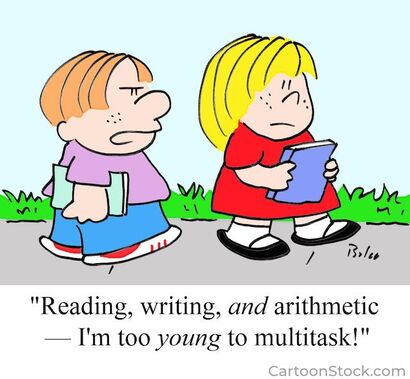




































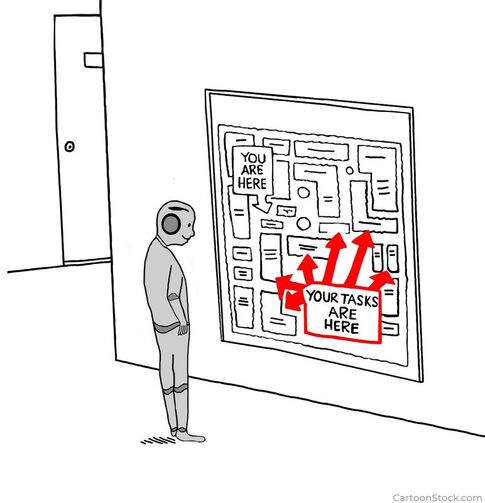











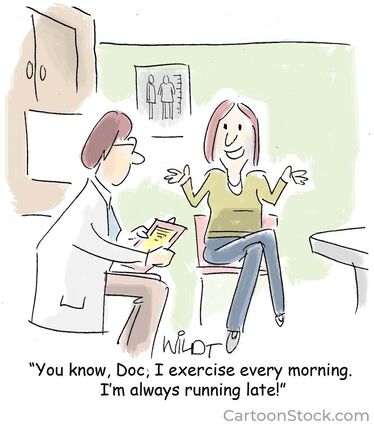











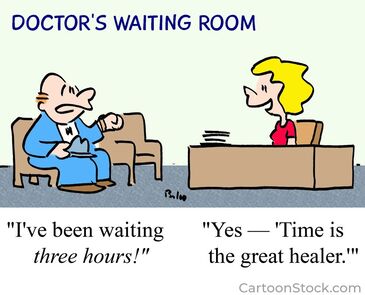
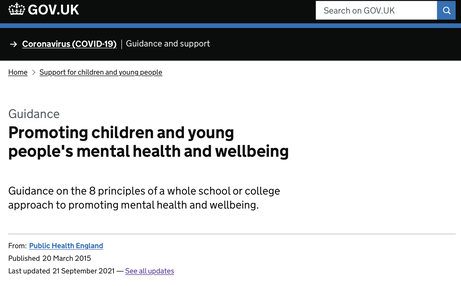


 RSS Feed
RSS Feed







